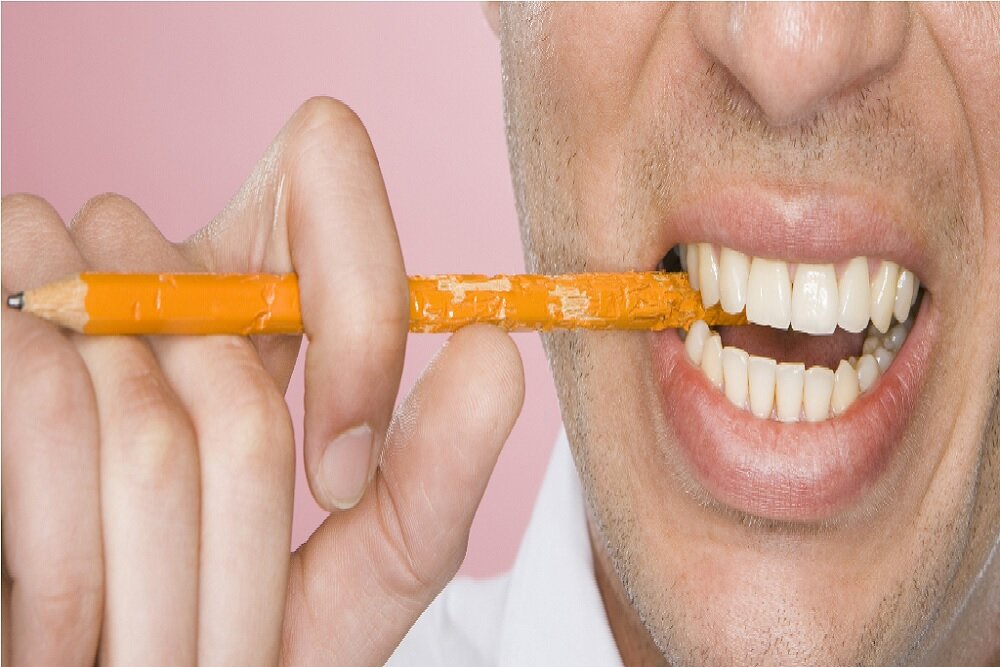Scientists say pencil chewing, which is a common behavior among many students and students, can strengthen the brain and memory.
According to RCO News Agency, Perhaps dogs who look at wood know something. Scientists thought to themselves that the concept of safe chewing some hard and durable materials might be worth the study.
According to a new study, chewing a hard substance such as wood can increase the level of a natural antioxidant in the human brain, which in turn can improve one’s memory.
Many people chew gum, which is softer and certainly more delicious than wood. As the authors of this new study pointed out, previous research has shown that chewing gum can actually increase brain activity significantly.
Pumping blood flow to the brain seems to improve a variety of cognitive functions. It is strange that clinical evidence also shows that people who have problems with chewing and consider it a challenge have lower cognitive function and higher mental disorders.
However, it is unclear what specific metabolic changes associated with cognitive activity occur after the increased blood flow.
In this new study, the researchers examined a possible explanation of oxidative stress in nerve tissues, which previously believed that it had a key role in reducing cognitive function.
Several metabolic processes produce harmful molecules that are known as active oxygen species that can cause cumulative oxidative damage to the human brain.
One of the best brain defenses against oxidative stress is an antioxidant called glutathione (GSH), which has many important tasks throughout the body, including protecting neurons against active oxygen species.
Hoping to clarify the cognitive effects of chewing, the researchers designed this new study to investigate the potential role of glutathione. They pointed out that despite its importance in the brain, the relationship between glutathione and chewing has attracted little attention.
They hired 52 healthy students in Digo University in South Korea and divided them into two groups. A group of 27 chewing gum was given to chew and the second group was asked to curse medical sticks.
Candidates each chewed their chewing for five minutes, while the researchers used the “magnetic exacerbation spectroscopy” imaging method to measure glutathione levels in their anterior belt cortex (a key brain area for cognitive control) before and after chewing. Also, all volunteers took a cognitive test before and after the activity.
According to the researchers, chewing significantly increased the level of “glutathione” in the anterior synagolite cortex, especially in the wood group, compared to the gum rodent group.
Increased glutathione concentration was positively linked to memory function with the results of cognitive experiments. In other words, Those who chewed wood and had more glutathione increased the experiments.
Researchers say: as far as we know, This is the first report that chewing can alter the level of antioxidants in the human brain, and the increase in the level of brain antioxidant is associated with cognitive function.
The authors of the study add that further research to support these findings, given the larger sample size, wider demographics and evaluation of different areas of the brain, is an important focus for subsequent studies.
While wood seems to have more benefits than gum, this study tested only two substances that were chewed for five minutes. Therefore, future research can also examine a wider range of materials and the duration of chewing.
These findings alone may not be sufficient evidence to recommend wood chewing to enhance memory, but offers a compelling evidence. Researchers say it would be good news, given the challenge of managing glutathione levels in the brain, if the wood chewing has this effect, it would be good news.
Researchers say: Since there is currently no proven drug or method to increase the level of GSH brain, our findings show that chewing relatively hard substances can act as an effective act to increase GSH levels in the brain.
This study is published in the journal Frontiers in Systems Neuroscience.
The end of the message
(tagstotranslate) Chewing wood
RCO NEWS
















